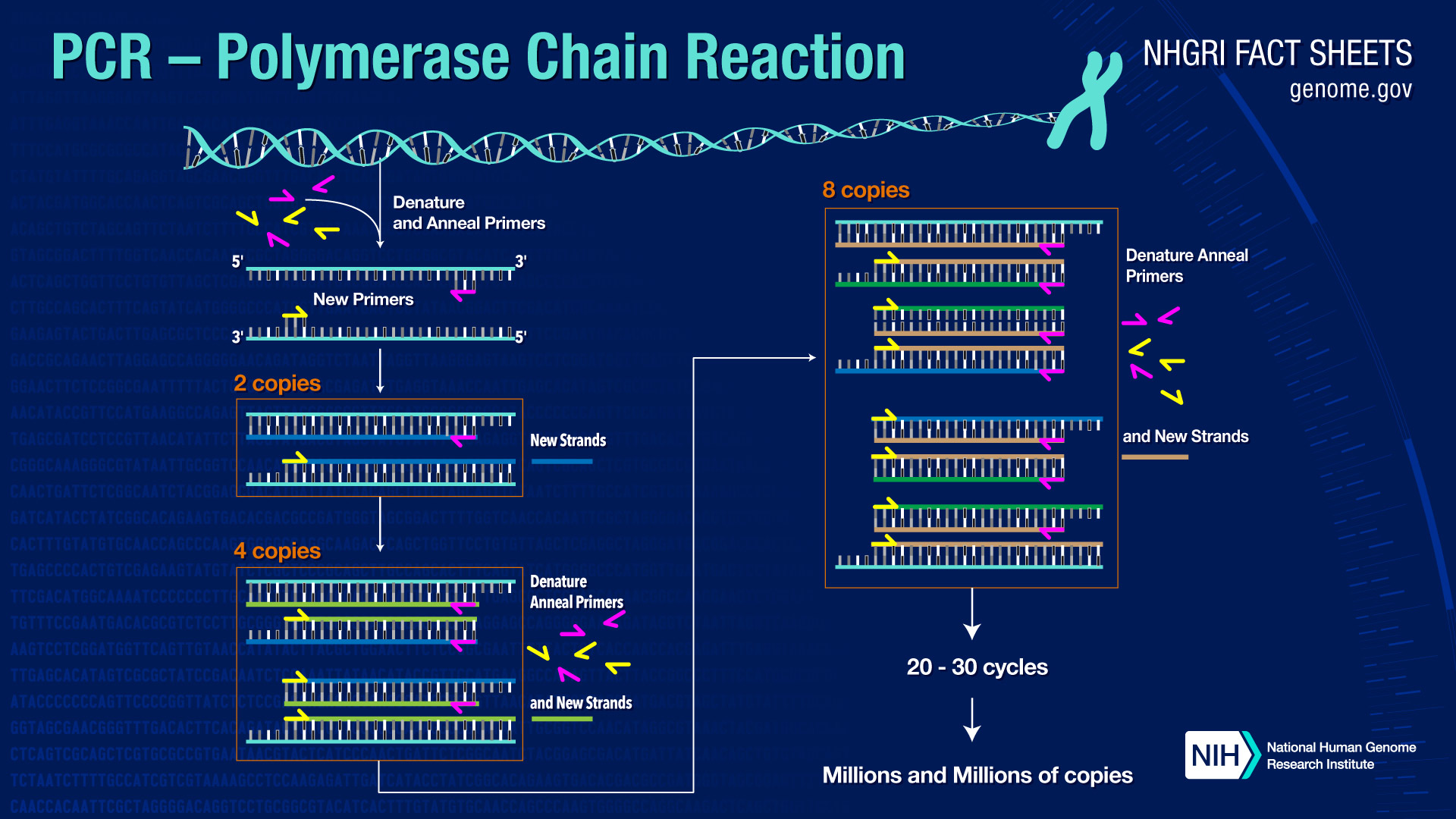Table of Contents
Introduction
- Polymerase chain reaction (PCR) is a powerful tool used to amplify specific DNA sequences.
- PCR is widely used in molecular biology and has become an essential technique in many areas of genetics research.
- PCR allows researchers to make multiple copies of specific DNA sequences, enabling them to study and analyze even small amounts of DNA.
Principles of PCR
- PCR is based on the ability of the DNA polymerase enzyme to synthesize new DNA strands from existing templates.
- PCR is a three-step process that involves denaturation, annealing, and extension.
- During the denaturation step, the double-stranded DNA is heated to separate the two strands.
- During the annealing step, short primers complementary to the target DNA sequence are added and bind to the single-stranded DNA.
- During the extension step, the DNA polymerase synthesizes new DNA strands from the primers.
- This process is repeated multiple times to amplify the target DNA sequence.
Components of PCR
- The components of PCR include:
- Template DNA: The starting material for the reaction.
- Primers: Short DNA sequences complementary to the target DNA sequence.
- Taq polymerase: A heat-stable DNA polymerase that is used in the reaction.
- Buffer: Contains the reaction components and provides optimal conditions for the reaction.
- Nucleotides: The building blocks of DNA that are used by the DNA polymerase to synthesize new DNA strands.
- Thermocycler: A machine that controls the temperature of the reaction.
PCR Applications
- PCR has a wide range of applications including:
- DNA cloning
- Detection of genetic mutations
- Identification of bacterial and viral pathogens
- Genotyping and DNA fingerprinting
- Gene expression analysis
- Genome sequencing
- Forensics
Types of PCR
- PCR techniques can be divided into two broad categories:
- Standard PCR: The most common type of PCR, used to amplify specific DNA sequences.
- Real-time PCR: A variation of standard PCR that allows for the quantification of the target DNA sequence in real-time.
Limitations of PCR
- Despite its many advantages, PCR also has some limitations, including:
- Non-specific amplification: PCR can amplify non-target DNA sequences, leading to false positive results.
- Contamination: PCR is susceptible to contamination, which can lead to false positive results.
- Primer-dimer formation: Primers can bind to each other instead of the target DNA sequence, leading to false positive results.
Conclusion
- Polymerase chain reaction (PCR) is a powerful tool for the amplification of specific DNA sequences.
- PCR has a wide range of applications, including DNA cloning, detection of genetic mutations, and identification of bacterial and viral pathogens.
- Despite its limitations, PCR remains an essential technique in molecular biology and will continue to play an important role in genetics research in the future.
